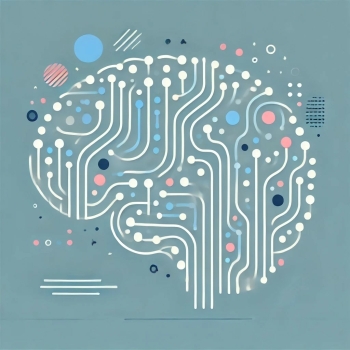Enjoying the climate, spending time outdoors.
At the end of the day you have a few drinks to unwind and celebrate life.
But sometimes, you find yourself wondering:
How is my current drinking pattern
affecting my health in the long term?
Enjoying the climate, spending time outdoors.
At the end of the day you have a few drinks to unwind and celebrate life.
But sometimes, you find yourself wondering:
How is my current drinking pattern
affecting my health in the long term?
Enjoying the climate,
spending time outdoors.
At the end of the day you have a few drinks to unwind and celebrate life.
But sometimes,
you find yourself wondering:
How is my current drinking pattern
affecting my health in the long term?
Is your relationship with alcohol serving you?
1. Why do you drink? Do you often use alcohol to relieve; stress, difficult feelings or over-thinking?
Is your relationship
with alcohol serving you?
1. Why do you drink?
but then realized you couldn't stick to your limits?
when you're drinking?
7. Do you feel you´re missing out when others drink (and you´re not)?
make you feel uncomfortable?
7. Do you feel you´re missing out...
Is your drinking worth how you feel the next day?
Who you are? And is the thought of giving that up make you feel uncomfortable?
Don’t worry—you can break the cycle.
Don’t worry—you can break the cycle.
Alcohol’s Cycle Explained
Alcohol works!
Especially in the short term, it does wonders:
it helps us feel positive, energetic, and relaxed.
However, in the long term, alcohol alters brain chemistry,
reinforcing negative thinking patterns and negatively affecting our emotions, mental clarity, and physical health.
This creates a vicious cycle:
The symptoms temporarily disappear when we drink.
But over time, the long-term negative effects intensify.
As a result, the urge to drink increases,
making it even harder to break free.
Alcohol’s Cycle Explained
Alcohol works!
Especially in the short term, it does wonders: it helps us feel positive, energetic, and relaxed.
However, in the long term, alcohol alters brain chemistry,
reinforcing negative thinking patterns and negatively affecting our emotions, mental clarity, and physical health.
This creates a vicious cycle:
The symptoms temporarily disappear when we drink.
But over time, the long-term negative effects intensify.
As a result, the urge to drink increases, making it even harder to break free.

Explore
What´s your relationship with alcohol. Why do you drink?

Set your goals
Who do you want to be? What are your core values.

Rewire
Creating new thought patterns, emotions and behaviour.

Explore
What´s your relationship with alcohol.
Why do you drink?

Set your goals
Who do you want to be?
What are your core values.

Rewire
Creating new thought patterns,
emotions and behaviour.
- whether for smoking, binge eating, or other substances -
share the same underlying mechanisms and can also be effectively addressed in therapy.- whether for smoking,
binge eating, or other substances -
share the same underlying mechanisms and can also be effectively addressed in therapy.

I was shocked
Drinking alcohol had become my way of coping with stress, and I found myself drinking five out of seven days a week.
Cindy encouraged me to stop drinking for at least 6 weeks. Although I had tried this before without success, this time, we focused on developing more effective ways to manage my thought patterns and emotions.
I was shocked by how profoundly sobriety improved my thoughts, emotions, and energy levels. It completely transformed my perspective on alcohol, and I now drink more consciously a few times a year.
- Deborah -

I was shocked
Drinking alcohol had become my way of coping with stress, and I found myself drinking five out of seven days a week.
Cindy encouraged me to stop drinking for at least 6 weeks. Although I had tried this before without success, this time, we focused on developing more effective ways to manage my thought patterns and emotions.
I was shocked by how profoundly sobriety improved my thoughts, emotions, and energy levels. It completely transformed my perspective on alcohol, and I now drink more consciously a few times a year.
- Deborah -
My name is Cindy
I help people who want to change their
relationship with alcohol and want
to create a healthier lifestyle.
I worked as a therapist and addiction counselor for more than 20 years.
Don´t worry, I´m not a sobriety preacher, and I´m not into labels like:
It´s your life.
You set your own goals...
My name is Cindy
I help people who want to change their
relationship with alcohol and
want to create a healthier lifestyle.
I worked as a therapist and addiction counselor for more than 20 years.
Don´t worry, I´m not a sobriety preacher, and I´m not into labels like:
It´s your life.
You set your own goals...
20
Years therapist
11
Years addiction counselor
Science-Based Approach
Specialized Expertise
your unique needs.
Science-Based Approach
Specialized Expertise
your unique needs.
Face-to-Face plus Online
Face-to-face meetings every two weeks, plus online support between sessions.
Private & Personal
Set Your Own Goals
Take control of your journey with personalized, goal-oriented support.
EMDR DeTUR protocol
(Desensitization of Triggers and Urge Reprocessing)
This protocol addresses the emotional triggers behind urges and cravings. It helps break habitual patterns and cultivates healthier, more effective coping strategies.
ACT
(Acceptance and Commitment Therapy)
As the third-generation cognitive behavioral therapy, ACT teaches you to navigate difficult emotions effectively, enabling long-term behavior change and emotional resilience.
Motivational Guidance
(Motivational Interviewing)
Helps you uncover what truly matters to you, creating space for change. It meets you where you are and supports movement toward where you want to be.
Inner Child Work
Explores unresolved emotions from the past, helping you address the root causes of harmful behaviors while fostering self-compassion and healing.
Medication Support
(in Collaboration with a Physician)
If needed, medication can support your counseling by reducing cravings and easing withdrawal, offering help during early recovery.
By combining these methods, we address all dimensions of your being: emotional, mental, physical, behavioral, and spiritual.

EMDR DeTUR protocol
(Desensitization of Triggers and Urge Reprocessing)
This protocol addresses the emotional triggers behind urges and cravings. It helps break habitual patterns and cultivates healthier, more effective coping strategies.
ACT
(Acceptance and Commitment Therapy)
As the third-generation cognitive behavioral therapy, ACT teaches you to navigate difficult emotions effectively, enabling long-term behavior change and emotional resilience.
Motivational Guidance
(Motivational Interviewing)
Helps you uncover what truly matters to you, creating space for change. It meets you where you are and supports movement toward where you want to be.
Inner Child Work
Explores unresolved emotions from the past, helping you address the root causes of harmful behaviors while fostering self-compassion and healing.
Medication Support
(in Collaboration with a Physician)
If needed, medication can support your counseling by reducing cravings and easing withdrawal, offering help during early recovery.
By combining these methods, we address all dimensions of your being: emotional, mental, physical, behavioral, and spiritual.

and start your journey toward a healthier future.
and start your journey
toward a healthier future.